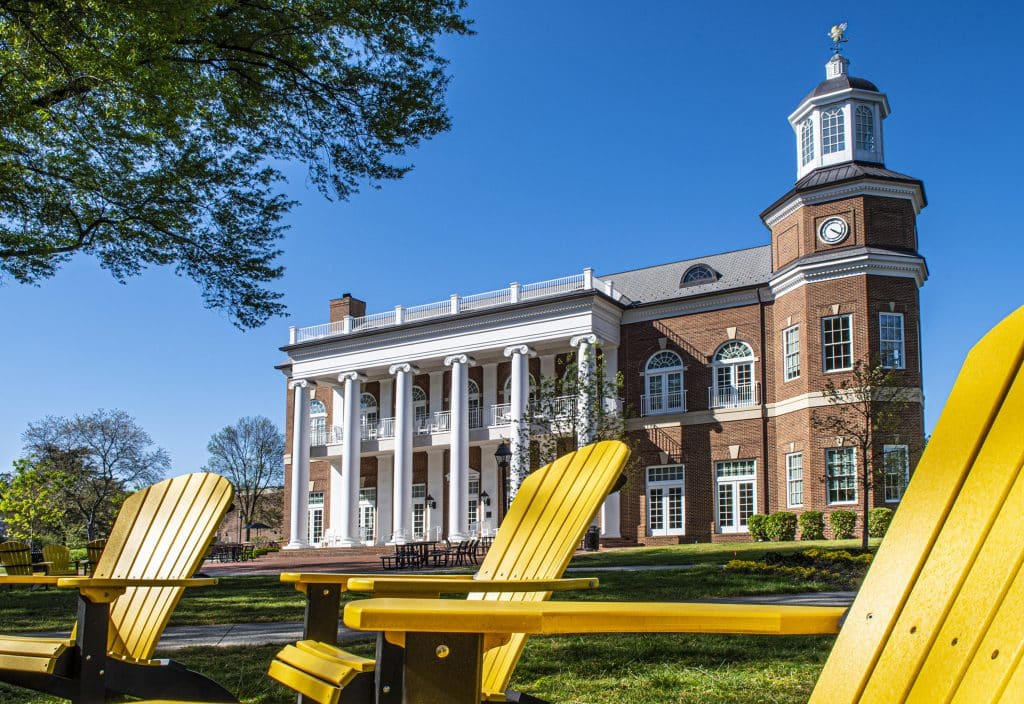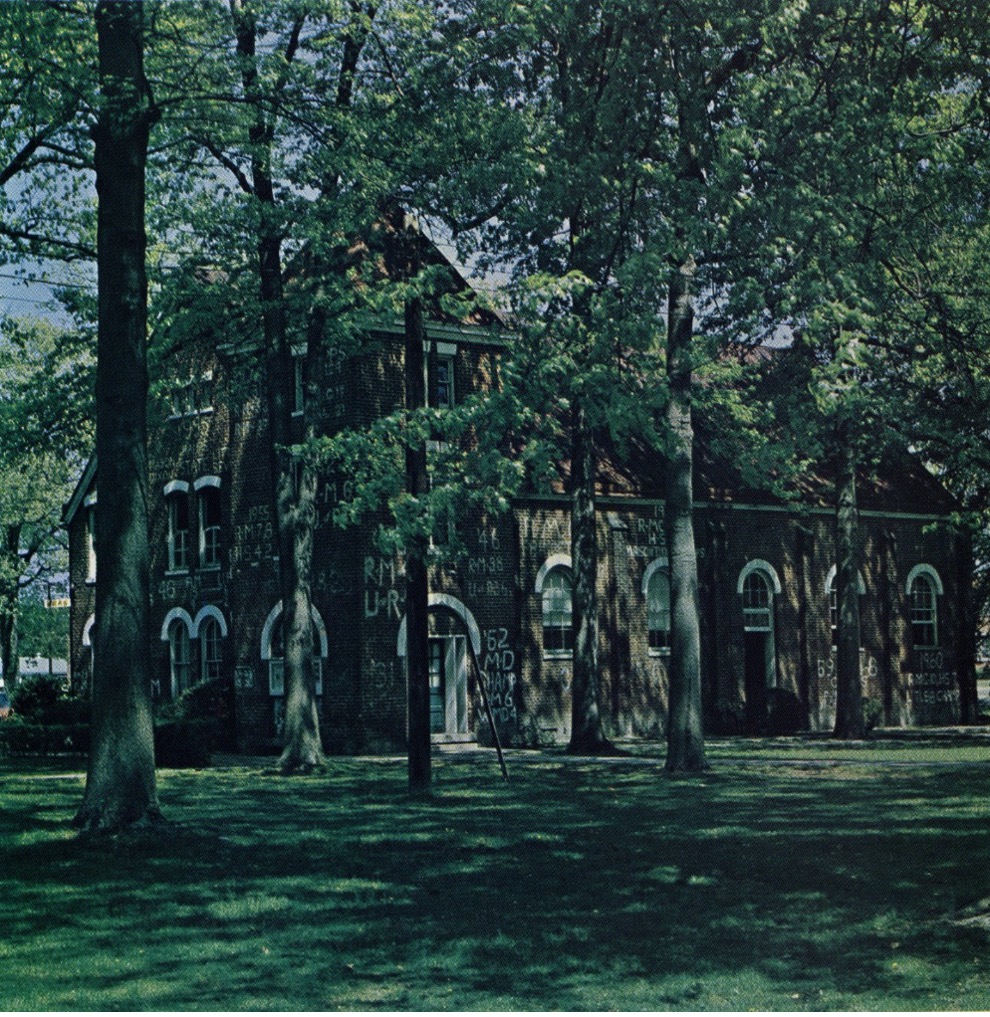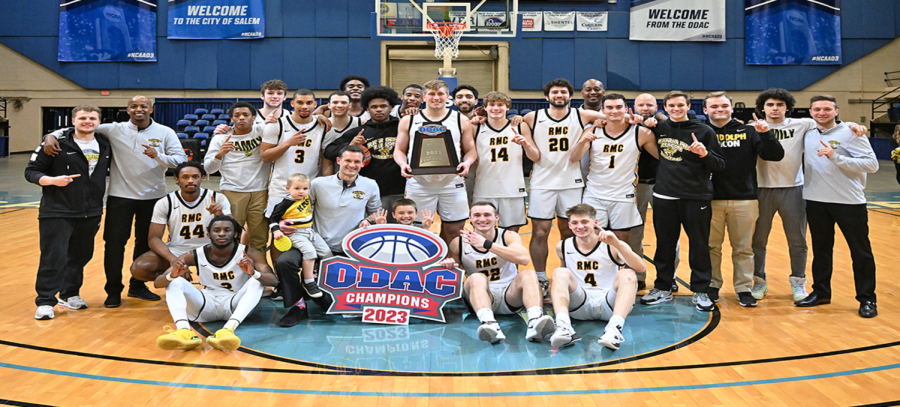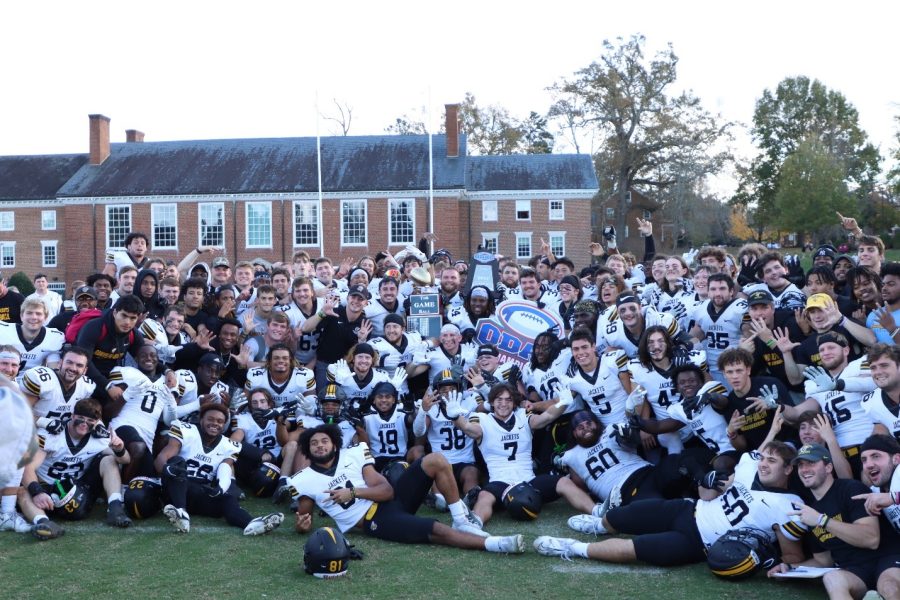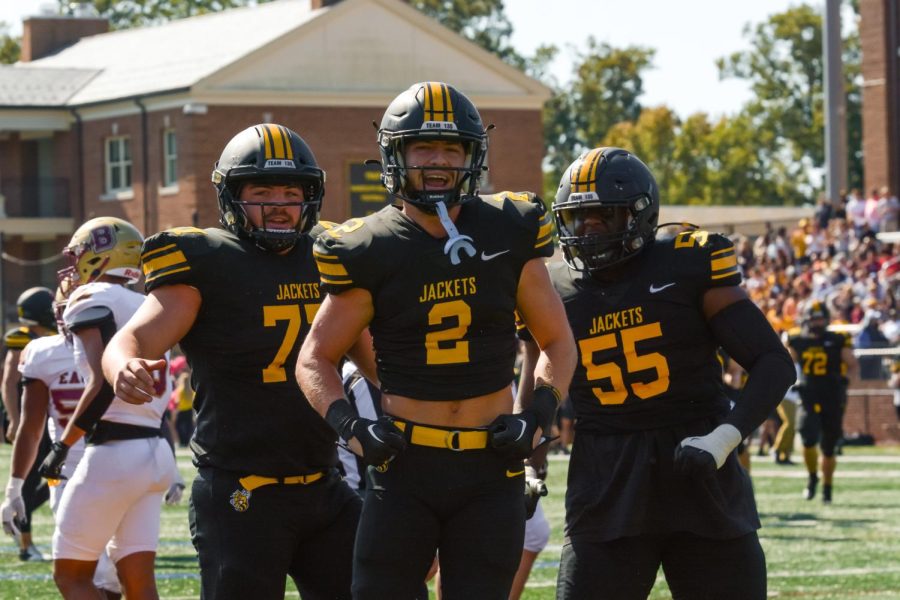Student Wages on Campus: Should They Be Increased?
Student Prasiddha Shrestha working at Greenberry’s.
May 30, 2022
This story was edited on 10/24/2022 at a source’s request. For more information, please contact us by emailing [email protected].
Randolph-Macon increased its student worker wages across the board for the first time in several years* in 2021. This change was prompted by the increase in Virginia’s minimum wage to $11/hr. However, due to the federal student worker program, R-MC does not need to follow the state minimum wage for student workers, so all campus jobs are still under $11/hr. After running a poll on our website, 82% of respondents said that student workers are underpaid and rates should follow the VA minimum wage.
Christine Pimblett, the IT service desk lead at R-MC for the past 6 years, has been a long-standing supporter of increasing student wages and incentives on campus. She has been the hiring manager of ITS student workers the entirety of her time here and has seen the need to change student wages for a long time. She has proposed a tiered wage increase incentive plan based on skill level, but she has faced a lot of resistance due to budget concerns.
ITS student workers have one of the highest paying wages on campus, sitting at $9.40/hr. Most jobs on campus are under that rate. Student worker Mina Ross is a SERVE intern making $7.75/hr. She mainly works with Elizabeth Simmons in the Student Engagement Center to find ways for R-MC to give back to the community through service opportunities.
“While the work that I do is flexible, I still am investing time and I feel as though the pay that I get should at least correspond with the amount of effort I’m putting in,” said Ross. She feels that R-MC’s student wages would be fairer if they followed the state minimum wage.
Before working on campus, Ross worked off-campus at a restaurant. “I only worked once a week for one shift and I would make double what I make now,” she said. If it weren’t for scholarships and parental support, Ross says that she would go back to working off-campus because of the pay.
Pimblett also noticed an issue with student workers finding incentives to keep working on campus with the low pay. There are many options off-campus that offer higher pay and sometimes students have a lot going on and drop shifts.
“I think it’s easier for student workers now to have too much going on and say, ‘this is the thing I can let go,’” said Pimblett, referring to shifts at ITS. “It’s not going to cost them very much because it’s only $9.40/hr. Would students cancel their shift if they were getting $15-16/hr? They might think twice.”
Nathan Soto is a senior that has worked on campus all four years, currently holding three student jobs. “At the library, I’m a student coordinator so I have a pay raise of $8.40/hr. I also make $8.40/hr at the theater and then I make $9.40/hr at the HAC as a returning tutor,” Soto said. “Regular student workers make $7.90/hr at the library and then first-year tutors make $8.40/hr.”
For the most part, Soto feels satisfied with his pay at R-MC. He feels that he gets treated fairly across all three jobs and he makes enough to get by. “I kind of like the system here,” said Soto. “I think maybe a little more care should go into the hiring process because some students don’t really do well with on-campus jobs, but other than that I think the system is pretty good for what we get out of it.”
Campus jobs still offer a lot of opportunities and flexibility to students. There are a lot of unique positions such as working at the Keeble Observatory or working at the Makerspace with VR and 3D printing. Still, many students on campus feel that student wages are low and must work multiple jobs.
What do you think? Should R-MC raise student wages for on-campus jobs?
*at least 8-10 years.
